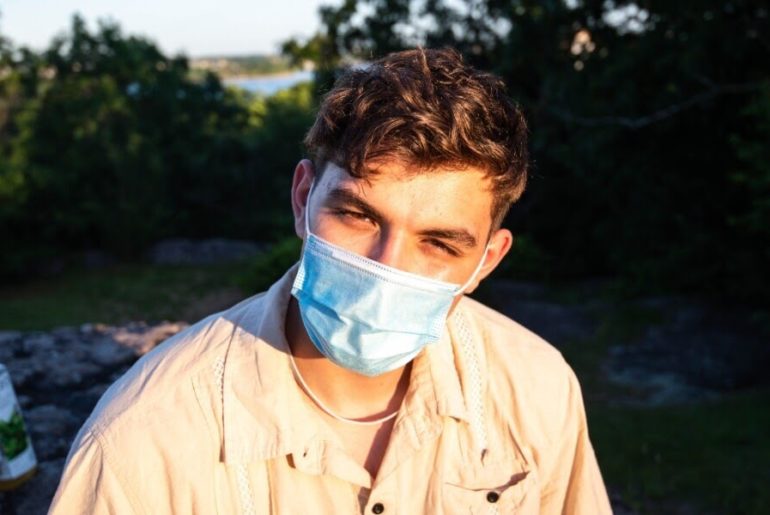As COVID-19 advances, scientists keep discovering ways in which it affects the body of those who are infected. However, as a great part of the research is focused on what happens to the body during the infection, many are left to wonder… What happens to a patient once they have recovered from the coronavirus?
Like many aspects about the novel coronavirus, there are still more questions than answers. However, as further research is done, new information has come to light about the immediate and lasting effects of the disease. Here are the answer to some of the most common questions:
What Happens to the Body Once It Recovers From the Coronavirus?
As most things with this virus, the answer varies depending on the person. For some people, recovering from the coronavirus feels like recovering from a normal flu, and it takes no more than two weeks to be at a hundred percent again. However, there are some who have a very different experience.
“I go through periods of hope mixed with periods of despair. I want to be able to run again and have the energy to do physical activity, but my body isn’t letting me,” Shana, who used to run 8.5 miles a day before she got infected, told Inverse. “I never expected this.”
Shana, who works as a critical nurse in Pennsylvania, said that her case of COVID-19 was “mild,” which makes the fact that she is still battling with its effects well after a month after being diagnosed even more puzzling. However, researchers are finding that cases like Shana’s are not that unusual.
“We weren’t focused on the end-game convalescence, and frankly no one was convalescing,” Reynold Panettieri, the science director of Rutgers Institute for Translational Medicine and Science, told Inverse. “Now we’re seeing a substantial number of people that are moving to the convalescent phase. What’s manifesting are these prolonged symptoms and syndromes.”
Depending on the severity, other patient’s experience with COVID has resulted in lung scarring, heart problems, long-term fatigue and brain damage. However, although those are some very real consequences, it doesn’t mean everybody will suffer them.
“We have had a good number of patients who, by the time they leave the hospital, are back to a good level of functioning,” Andre Sofair, MD, MHS, a Yale Medicine internal medicine physician who has been taking care of patients with mild to moderate COVID-19 at Yale New Haven Hospital, told Medical Xpress. “And even those with severe heart disease or diabetes may make a good recovery after four or six days in the hospital.”
Do People that Recover From Covid-19 Have Immediate Immunity?
The immunity question has been greatly debated amongst experts. While most were hopeful that there would be a certain kind of immunity after covid, there is little evidence of how long immunization to the new virus lasts. Some people have even been reported to get the virus after recovering from it, but that may be due to tests that incorrectly recorded that they were already free of the virus.
Research has shown that those who contracted the virus and were asymptomatic have lower antibodies that those who experienced symptoms. However, researchers point out that there is an important difference between T cell immunity and B cell immunity.
T cells are the cells that are ready to fight infections the moment they enter the body. These are the cells that asymptomatic people seem to be lacking compared to those who experienced the symptoms. However, type B cells are the types of cell that store memory, meaning that even if they are not noticeable during an antibody test, they will wake up and fight the virus if the person becomes infected again.
“If they find the virus again, they remember and start to make antibodies very, very quickly,” Florian Krammer, a virologist at the Icahn School of Medicine at Mount Sinai, who has led several studies of antibodies to the coronavirus, told the New York Times.
How Long Until It Is Safe to See Family and Friends?
As you probably guessed, the time varies depending on the patient. The Centers for Disease Control and Prevention (CDC) advises that those who had Covid symptoms should wait 10 days after symptoms first appeared. Additionally, they should wait until those symptoms have improved and have had more than 24 hours without fever without the help of medications.
As for asymptomatic people, they can be near people again if 10 days have passed after the positive diagnosis. However, they still recommend following their health provider’s advice in both cases.
Back in April, Dr. Isabella Suarez told Revolution English that after a patient is discharged from the hospital after being infected with coronavirus, they should continue to have some sort of treatment at home depending on their specific conditions. She also pointed out that they should remain isolated in their homes for some time, ideally 14 days.
How Long After Recovering Can You Donate Plasma?
Doctors advise that patients can donate plasma after being symptom-free for 14 days. Donating plasma can be an important additional step after recovery because a patient’s plasma could help others battling the virus get well.

